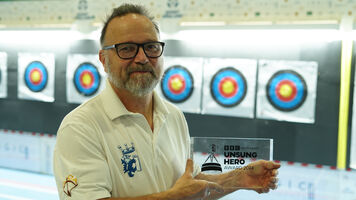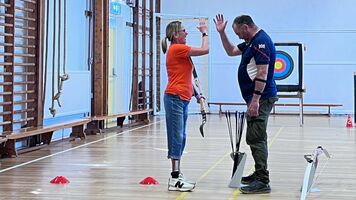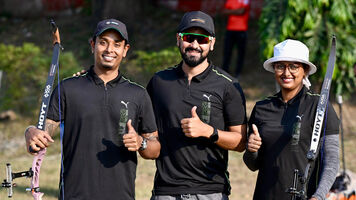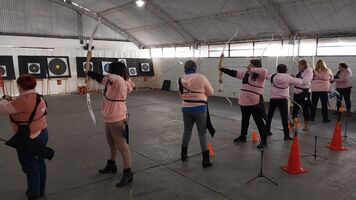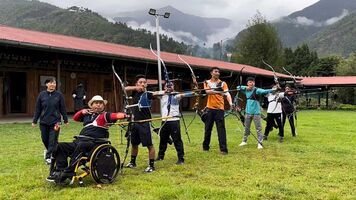Coach Sally building an Olympic archery contender in Bhutan
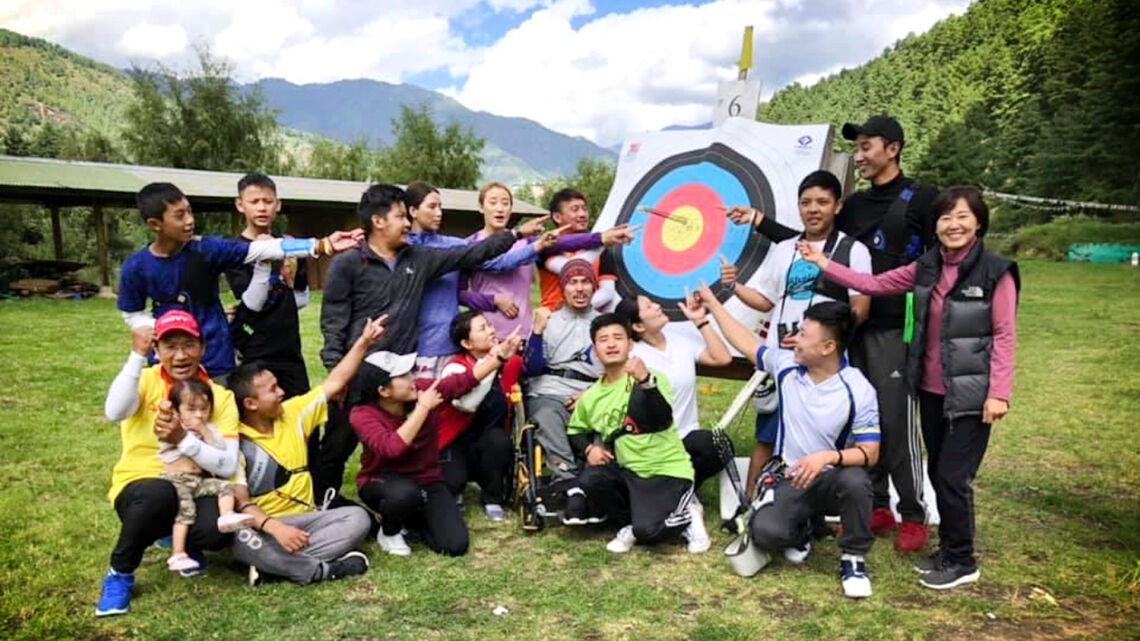
The Bhutanese Archery Federation is brimming with potential. The organisation has taken significant strides over the past few years, implementing development programmes for para archery and the national team with an eye toward the future.
It has been a global effort. In 2018, Bhutan hired a foreign coach in Park Young Sook – better known as Sally – a Los Angeles 1984 Olympian who has blossomed into a renowned coach.
Bhutan made its Olympic archery debut in 1984 at the same Games in which the nation’s new coach competed. It has sent at least one archer to compete in every Olympic archery competition – via universality invitation after quotas were introduced in 1996 – ever since.
Under coach Sally, Bhutan has now gone one step further, with female archer Karma – who shot in Rio with an invitation place – winning the country’s first Olympic quota in any sport at last year’s Asian continental qualification tournament.
Sally had previously built an Olympic pathway from scratch in Malawi, one of the poorest countries in the world, and shaped Areneo David into a world-class archer seemingly overnight for his appearance at Rio 2016.
That journey was the subject of the Korean documentary Hello from Malawi, which is available to watch in full on World Archery’s Youtube channel.
Her experience in Malawi, Sally said, changed her perspective on life. The challenges she faced far exceeded that of a conventional coaching position.
“When I started coaching in Malawi, only one archer could speak English,” she said. “I would explain the technique to the archer, and it would get translated from English into Malawi for the other archers. But one day, I realised he didn’t always translate things correctly.”
Sally also heard several difficult stories from her archers about their lives. Some didn’t have food at home, while others had their roofs blown away by the strong wind. Another was bitten on the leg by a snake.
“Many things happened,” she said succinctly.
Sally was rewarded with her appointment as coach of Bhutan in May 2018 on a one-year rolling contract to oversee both elite and grass-roots performance programmes across the country. Her initial mandate was to identify sustainable steps forward to increase Bhutan’s competitive success.
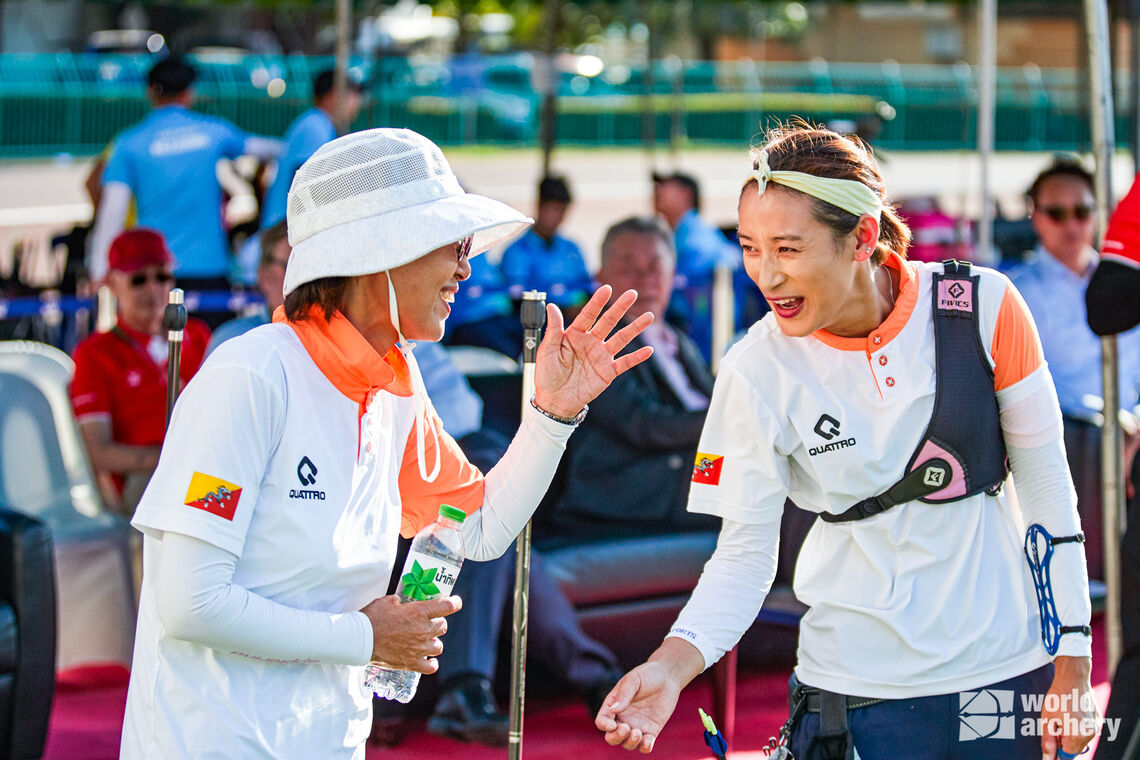
Bhutanese archers are well-behaved and obedient, she explained. Yet while those qualities make them easy to coach, she wants her archers to be strong mentally, like soldiers. It has been a difficult and rewarding process shifting their personalities, she said.
“It is a great experience for me to understand each country’s culture,” said Sally.
As traditional archery is the national sport of Bhutan, the archery federation gets more funding from its National Olympic Committee compared to other sports. But the budget does not cover the cost of new equipment for every archer – and there are not the resources readily available to provide appropriate gear to each member of the squad.
Gaining international competition experience is also difficult without the money to participate overseas. And then there’s the matter of securing visas. Bhutan’s archers must travel to India to apply for a visa to Europe, which takes approximately a week and makes training in preparation for the competition very difficult.
When Sally arrived in Bhutan, there were only seven national archers: three men, three women and one para archer. There wasn’t a selection process to make the team like in other countries.
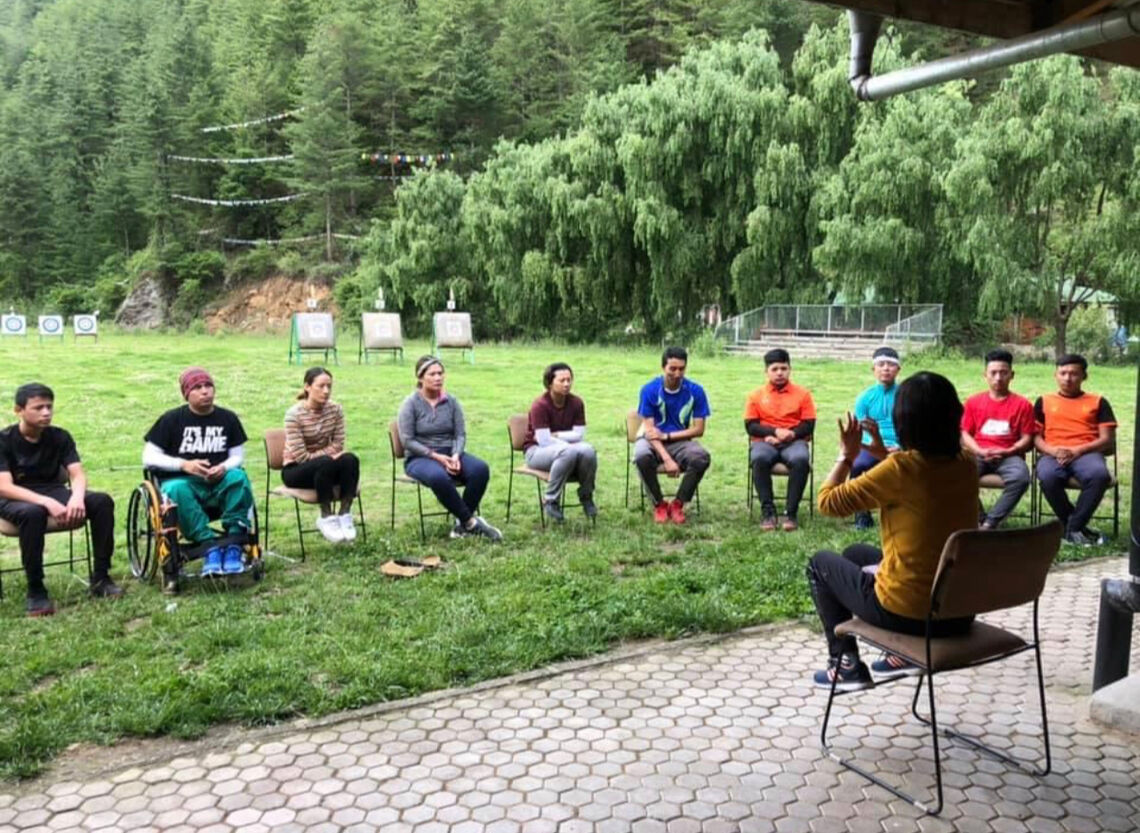
At the time, the Bhutan Olympic Committee’s secretary general suggested that Sally change the training system to develop archery. Sally and the national federation set up archery camps and competitions for younger archers to identify new talent.
“I found some good boys and girls during the archery camp,” she said, “but I couldn’t select them, as their houses were far away from the national archery range.”
Other young athletes, meanwhile, can still be selected and join the training programme, which now counts three groups: the national team, the junior team and the beginners.
As well as the overall structure of the performance programme, there were detailed aspects of technique that needed widespread improvement. Many of the archers’ postures, Sally said, needed work.
“When I started coaching in Bhutan, I was not satisfied with archers’ technique,” she said. “I felt that I stood in front of a big mountain.”
They are slowly scaling that mountain. The team is committed to its craft, she said. Sally is now 90% satisfied with their techniques – and the difference can be seen in comparing the now 30-year-old Karma’s style on the Olympic field in 2016 and last year.
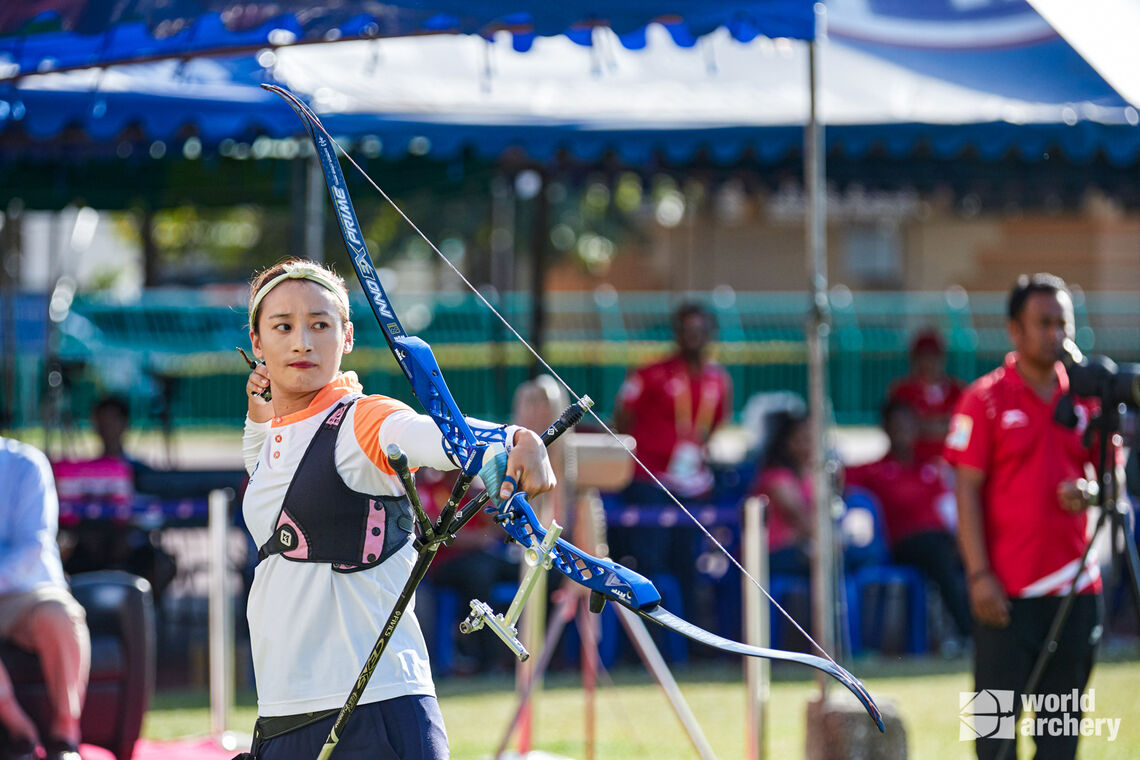
“I didn’t know how to teach her, because her posture was the worst among Bhutanese archers,” Sally said. “But she followed my guidance well and made lots of effort.”
It was only a year after Sally’s arrival that Karma qualified that place for Tokyo 2020 in Bangkok. And, more recently while competing in a remote competition run by a group in Japan, she hit an internationally respectable score of 656 points for the 72-arrow 70-metre ranking round.
“I am very proud of her,” said Sally.
Although Sally’s contract with the Bhutan Olympic Committee and Bhutan Archery Federation expired at the end of August 2020 – after the Olympic Games in Tokyo should have been held – she’s remained in her role thanks to financial support from the Korean Olympic Committee and Korean Archery Association.
What happens after that is still unclear.
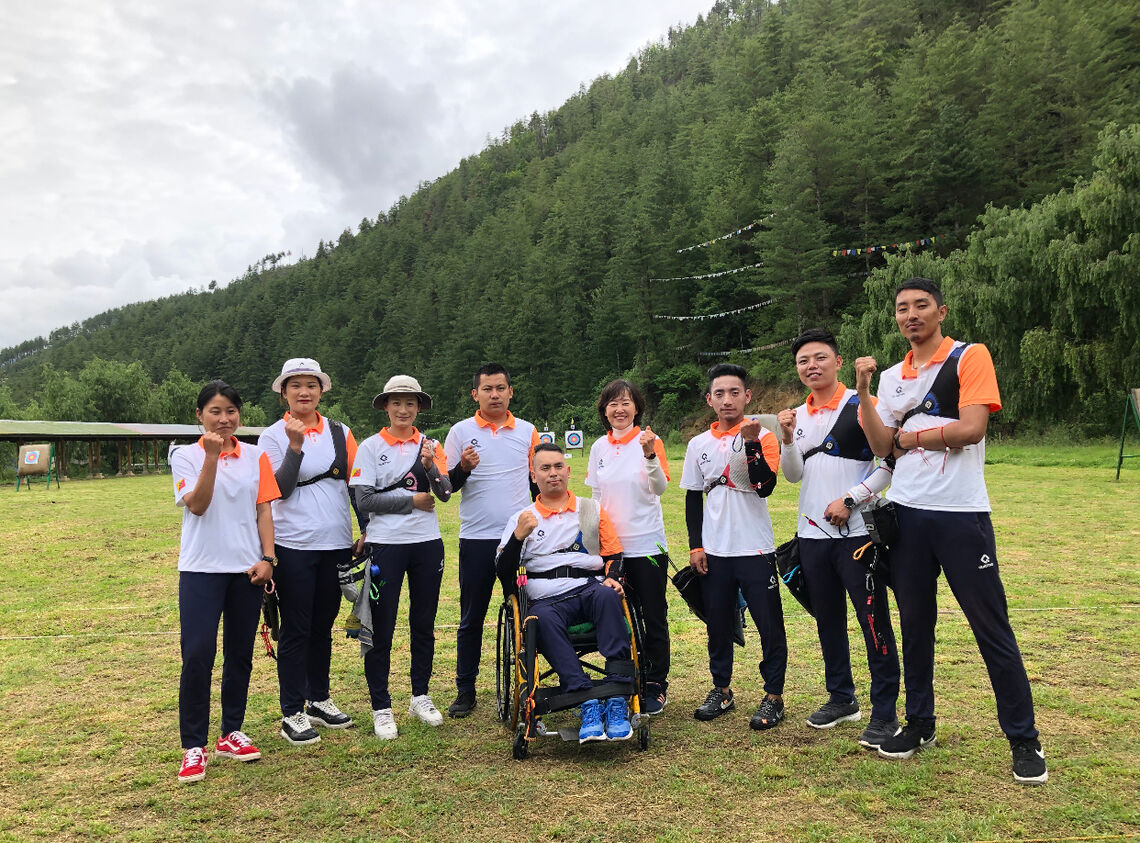
Regardless of what the future holds, the results of Sally’s efforts in Bhutan are already very visible. She’s like to put a good system for para archery in place before she leaves.
“I really want to teach archery to refuge children,” Sally said. “If it is possible, disabled children, too. I want to give them hope.”
The process of educating sports administrators about para archery started in 2019, with two technical courses organised in Thimpu by the Agitos Foundation. Bhutanese coaches were joined by participants from Sri Lanka, Nepal, India and Pakistan.
Next year’s Olympic Games in Tokyo will be critical in writing the future story of competition archery in Bhutan.
Coach Sally, and Karma, have done incredible work together over the past few years. A strong result next summer – advancing further than the previous best for a Bhutanese archer, the second round – would go a long way to strengthening the growing support for this emerging Olympic contender.





